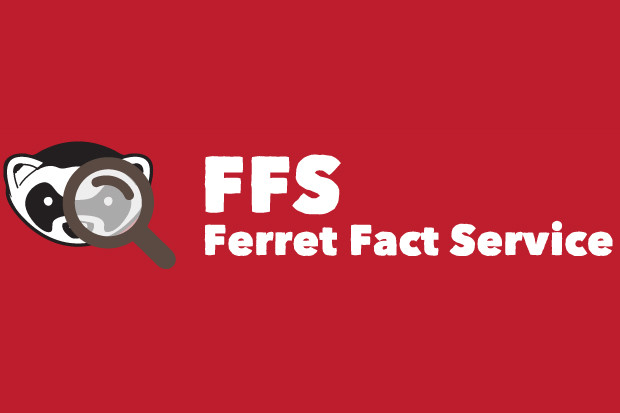With its two year anniversary coming up next month, media co-operative The Ferret launched a fact-checking service on Wednesday (26 April), to analyse and verify claims made around issues that are affecting Scotland and the UK.
Funded through the Google Digital News Initiative, Ferret Fact Service (FFS) will draw from the expertise of the organisation's journalists, members of The Ferret and anyone who wants to volunteer to help an on-going fact-check or start a new one.
Fact-checks will be published on The Ferret website and there is also a community forum where people can suggest claims to be verified and share ideas and resources.
"We want to get as many people involved and we also want people to be able to fact-check themselves, to be able to look at news in a critical way and look at claims and think 'well, what are the things that make this seem possibly less accurate?'" Alastair Brian, Ferret Fact Service, told Journalism.co.uk.
The issues that have been fact-checked so far include 'Has the SNP overseen the biggest in-work poverty increase since devolution?', 'Does Scotland have the best A&E waiting times in the UK?' and 'Would an independent Scotland have to join a queue for EU membership?'.
Fact-checks will be available on The Ferret website for a week after they've been published before they go behind the paywall, which requires members to pay £3 a month for unlimited access to stories. Non-subscribers can read three articles per month before the paywall kicks in.
"Part of the beauty of Ferret Fact Service and of fact-checking in general is that all of our source material is transparent.
"You can go back and check how we've come to a conclusion by looking at where the statistics have come from or where the piece we've cited has come from."
The articles are primarily text based and the team is looking to make use of more video, images and graphics that can make it easier for readers to share the information on social media. The aim is to "keep them readable, not too formal and not too academic".
Each fact-check is rated on a scale from 'true' to 'FFS', with the latter reserved for "claims that are ridiculous rather than just incorrect". The scale also includes labels such as 'half true' and 'mostly false'.
The model for the verdicts was inspired by PolitiFact in the US, "because they've got quite an informal style", Brian said. He also highlighted The Conversation's approach to fact-checking, which relies on academics verifying claims, as opposed to journalists.
"I think one of the problems with fact-checking sites is that it can be quite stuffy and overly statistical, or formal, and not so easy to read.
"If something is not readable, then you're less likely to finishing reading it, so we've been inspired by them to make our things as punchy as possible."
Free daily newsletter
If you like our news and feature articles, you can sign up to receive our free daily (Mon-Fri) email newsletter (mobile friendly).
Related articles
- How to use Telegram for online journalism investigations
- Building media literacy in the age of Zuck and Musk
- What the news community says about Zuck’s plans to bin fact-checking
- Going greener: Scottish newsrooms team up for sustainability reporting project
- Livestreaming, explainer videos and newsletters: Overnight election coverage with three new media companies












